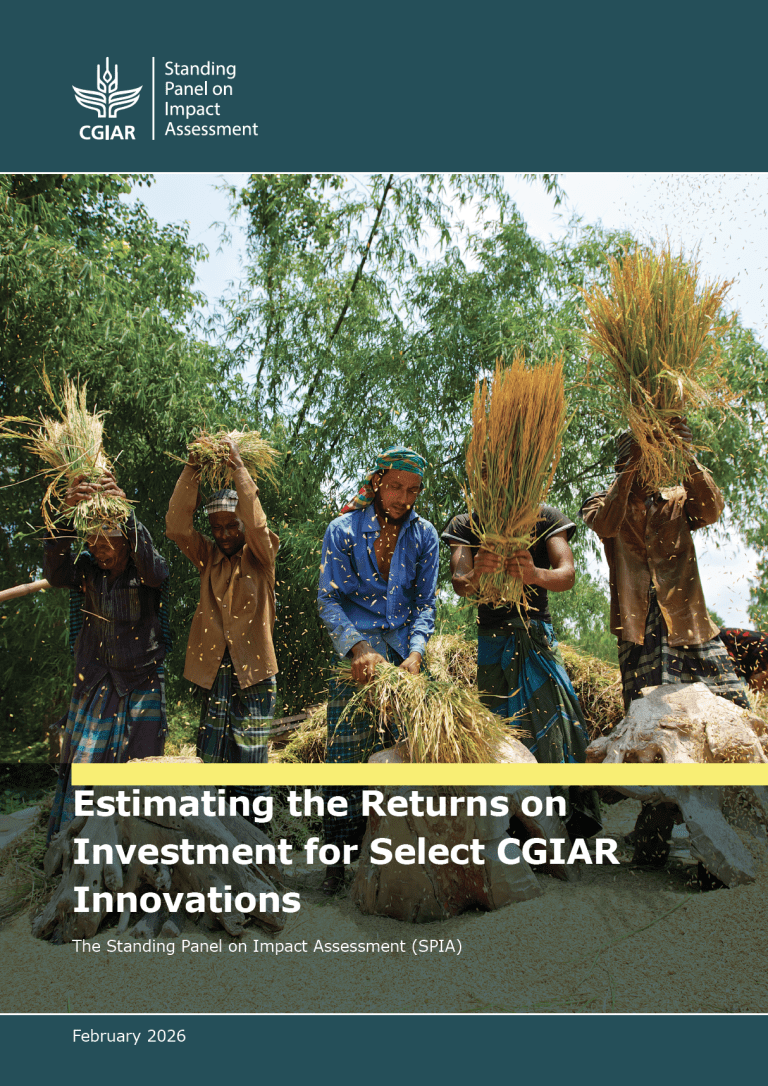Research Workshop
Time: 1:00pm - 2:30pm
Location: United Nations Office at Nairobi, Conference Room 9
Online: Watch the livestream
CGIAR requires an overall approach to impact evidence for accountability and learning at the System level. SPIA approach aims to both strive to the highest standards of rigor and acknowledge the long and complex causal pathways to impact of CGIAR research, stemming from uncertainties inherent to the scientific progress, development processes, interactions between innovations within bundles or at System level, and rapidly changing climatic, agro-ecological, and socioeconomic contexts.
To understand the returns to CGIAR investments, first, reliable estimates of the "reach” of CGIAR research at country level are needed. Tracking such reach in priority countries can document progress towards impact and help understand adoption and dis-adoption decisions by different types of users. Evidence on whether key target audiences (women, youth, poor, remote farmers) choose to adopt these innovations is a first step to understanding impact.
Second, estimates of the benefit per person/community reached are also needed. These benefit estimates can be small for many innovations, and may even be negative for some, while a minority of research investments or specific innovation bundles may have benefits that are transformational for the people reached. These real-world impacts are not easy to predict, and likely contested by different parties, so they should be empirically and independently estimated through rigorous causal impact assessment studies.
In this session, CGIAR and independent researchers will present emerging evidence on the reach and impacts of CGIAR research and will discuss the importance to use rigorous methods to generate credible and relevant evidence needed by different CGIAR decision-making processes.
Moderator: Ricardo Labarta
Schedule
Introductory presentation
Sujata Visaria: SPIA approach to document CGIAR reach and impacts and to inform CGIAR Science Programs
Presentation 1
Sujata Visaria: Measuring the adoption of bundled innovations at scale: Lessons from the 1M5R package in Vietnam.
Presentation 2
Julius Juma Okello: Impact of long-term large-scale intervention with biofortified crops: The case of sweetpotato in Uganda.
Presentation 3
Emmanuel Leeta: Agricultural Diversity under Stress: Insights from SPIA Uganda Report 2025
Presentation 4
Astewale Melaku: Child and women welfare implications of female labor participation in the Ethiopian Agricultural sector
Moderated general discussion
Speakers
Sujata Visaria
Reader, City St. George's,University of London
Julius Juma Okello
Impact Assessment Specialist, CIP
Emmanuel Letta
Researcher, SPIA
Astewale Melaku
Postdoctoral Fellow, SPIA
Ricardo Labarta
Principal Scientist, SPIA






